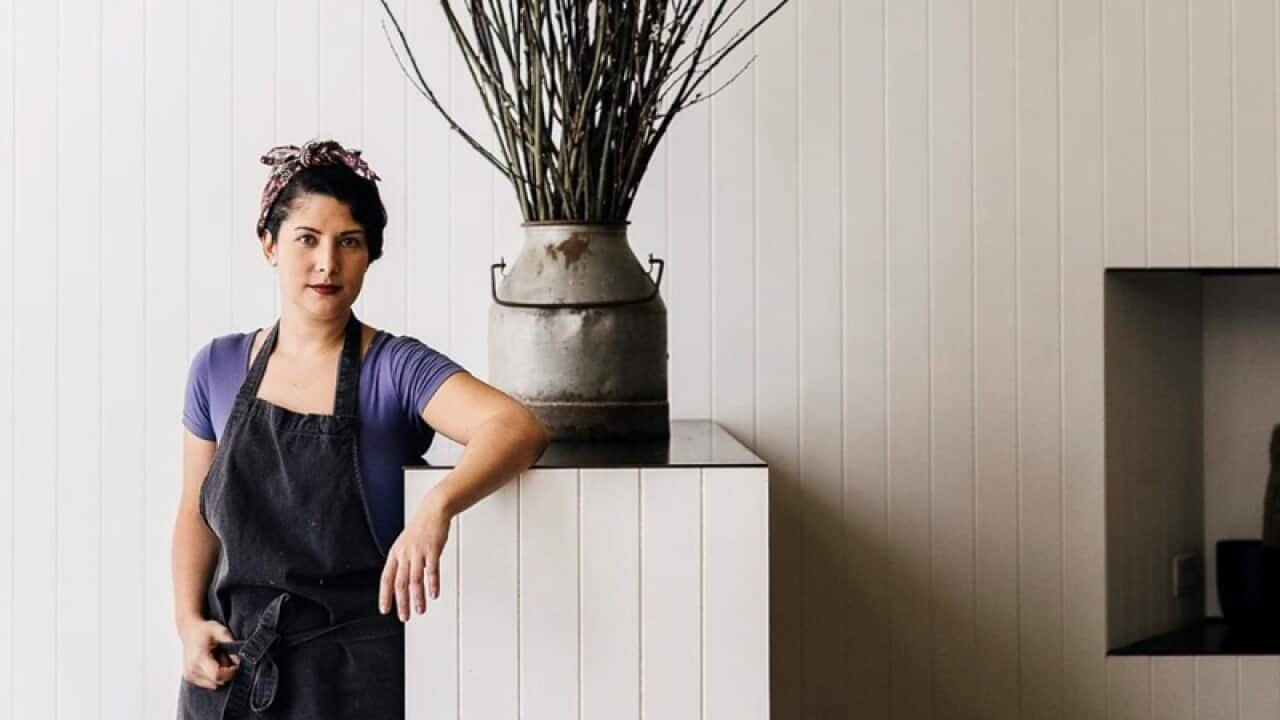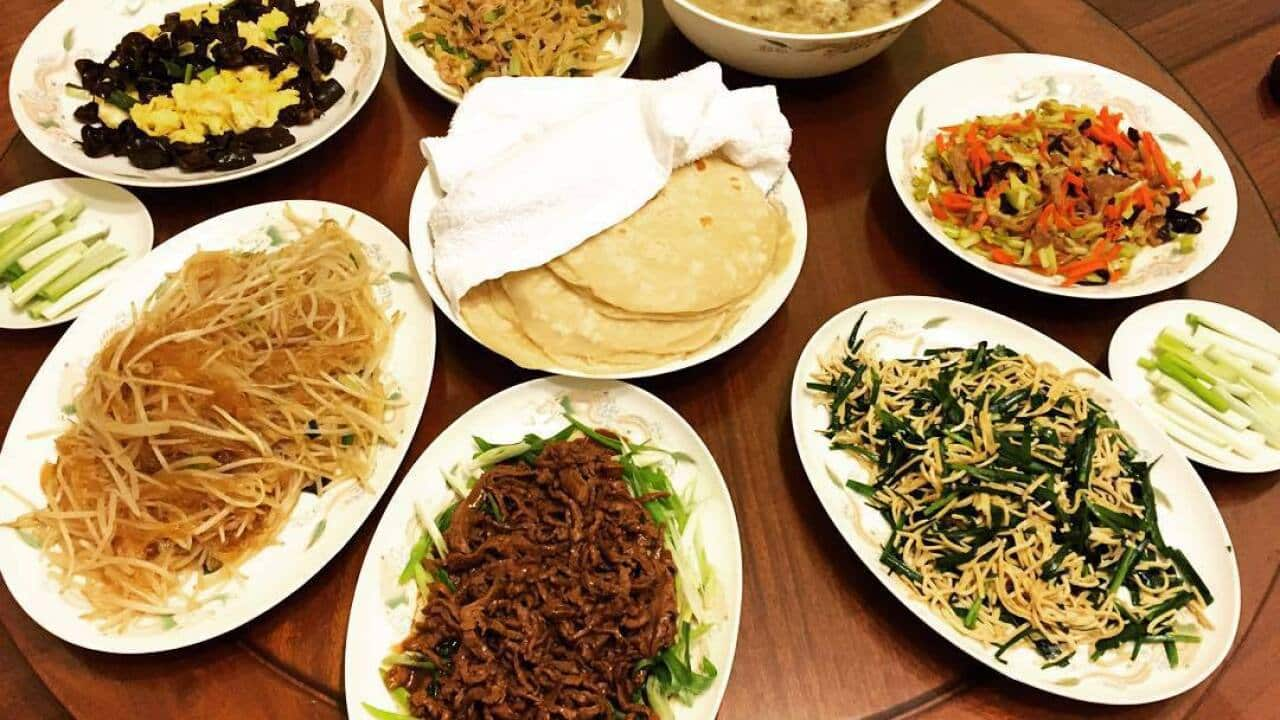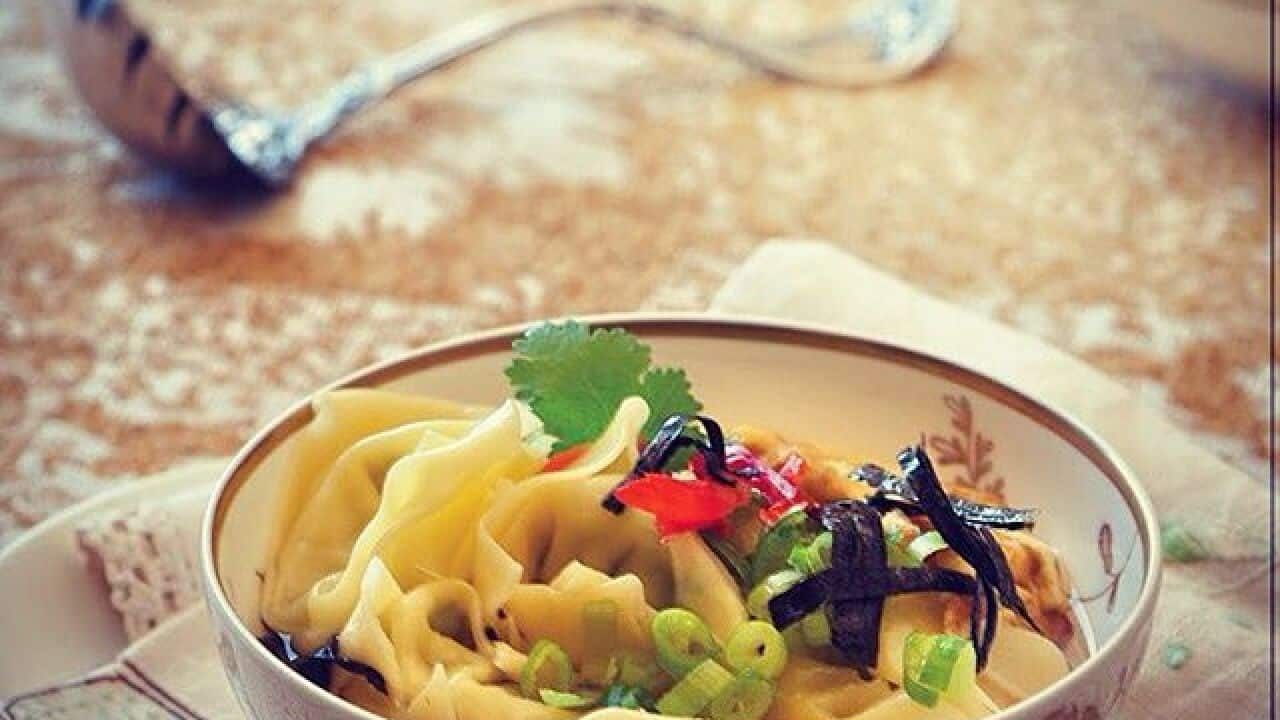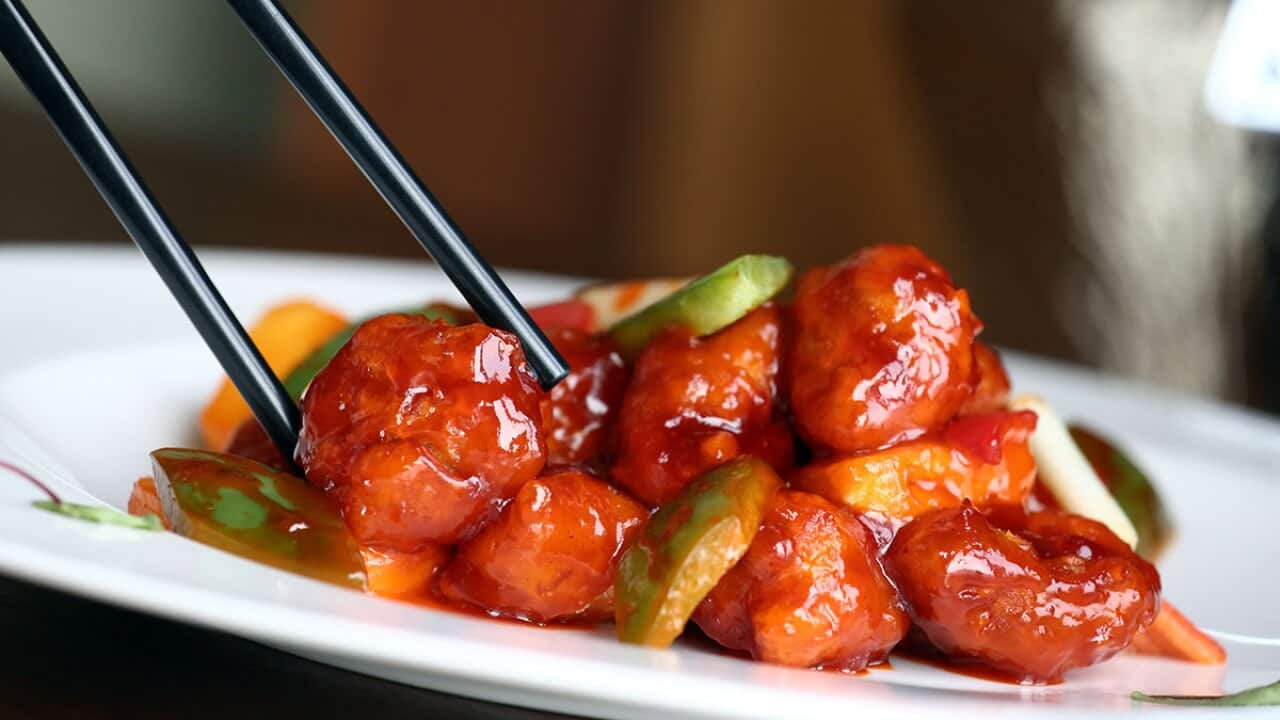--- Explore life at the bottom of the world in Tasmania in , 8.30pm Thursdays from 18 November on SBS Food and SBS On Demand. ---
"To Fay, Ina and Joy, the Chinese matriarchs of my family, who taught me to cook, to be resilient and how to test a winter melon with my pinky nail."
You'll find this dedication at the end of , the new memoir and cookbook by Tasmanian-based chef . "Ina was my grandmother," she says. "Fay, Ina and Joy were sisters and they all immigrated from China in a boat."
In suburban Auckland, where the chef grew up, these women schooled her in char siu bao, bird's nest soup and steamboats. They flipped to old Chinese cookbooks for reference and pulled out "new and wondrous pieces of equipment" to get the job done. Like monumental stovetop steamers that could cook 45 Chinese buns in one go – just standard stuff for any Chinese household.
Her mother Jacqui presumably saw her relatives as convenient babysitting standbys. "But to me as a kid, it didn't seem that way," says Gregory. "I thought I went there for cooking lessons."
She also thought she visited to learn hacks for selecting the best produce, as her grandmother Ina demonstrated with her famously long pinky nail. "It was really weird and would stand out," says the chef. "She'd go, 'Analiese, it's for when you go to the markets, you can test the vegetables and see what they're like inside.' I was like, 'no, seriously?!'"
At markets, her grandmother would bore her fingernail through winter melons, "so she could see the colour of the melons inside – she was hilarious".
It's not a lesson that Gregory has personally taken on: "I have 'kitchen nails'. I've always had really short nails, ever since I became a chef."
Gregory grew up with a rice cooker permanently on the bench and slightly crunchy stir-fries for dinner, because her mother didn't cook them for long enough. Her mum, who has Chinese-Dutch heritage, would also serve stroopwafels ("I have a lifelong love of them from my childhood," says Gregory), sweet breakfast sprinkles (hagelslag) on toast and salted liquorice.
Her mother's influence can be felt in Gregory's book, in recipes such as the Chinese breakfast eggs, which the chef now makes by whisking eggs with chopsticks and flavouring them with a salty splash of soy.
"I didn't eat eggs and toast until probably my mid-twenties. I didn't grow up in a poached egg household," she says. The recipe in How Wild Things Are also spurs childhood memories of living on a dairy farm in Matamata, New Zealand, where eggs could be collected (and cooked) from the hundreds of chickens roaming around.
"My stepfather's family were dairy farmers in the middle of the north island. So we spent quite a few years living on their farm – which is weird because we didn't really drink milk," she says.
In fact, she's returned to congee and other Chinese recipes she's grown up for this reason. "I really came back to it when I became lactose intolerant. Some days, whatever I ate in the morning would make me feel sick for the rest of the day, [whereas] my body seems to digest rice really well."
She has her rice cooker on virtually all the time, despite visitors being "horrified" and worrying about food poisoning when they see it in her kitchen. "I'm like, 'I'm still alive. I was brought up on bench rice!'"
The abalone and XO butter egg noodles in How Wild Things Are are inspired by the fresh egg noodles her mother would buy from a Chinese market in West Auckland – which she'd fry simply in peanut oil. "I remember it being just the most delicious thing," says the chef. Gregory's version is inspired by the abalone haul from her Tasmanian diving spells. Her potato gnocchi with lap cheong and kombu butter is a reminder of how she'd dig out the prized Chinese sausage from fried rice as a kid – because they got to eat it rarely – and her time working a gnocchi station at a Michelin-starred restaurant in London. "I used to make five types of gnocchi every day."
Her potato gnocchi with lap cheong and kombu butter is a reminder of how she'd dig out the prized Chinese sausage from fried rice as a kid – because they got to eat it rarely – and her time working a gnocchi station at a Michelin-starred restaurant in London. "I used to make five types of gnocchi every day."

Analiese Gregory dives for abalone in Tasmania. Source: Supplied
Her Chinese roots are also explored in her upcoming TV show for SBS, .
I used to make five types of gnocchi every day.
The chef says it was important to cover her heritage, because it helped explain "why I live in rural Tasmania and why I'll be making XO sauce, why a rice cooker is always on my bench, why I have a wok-burner at the back of my house in the garage."
The show actually led to her researching her own family origins, as she got asked about her Chinese relatives and realised she didn't have the answers.
"My grandmother and her sisters, they've all passed away, so none of them are with us anymore," she says. "I'd never really thought about the reasons why they left China before."
As she looked into her great-great-grandparents, who immigrated to New Zealand a century ago, she came up with theories.
"I think they had 10 kids and five of them died of TB [tuberculosis]," she says. There might also have been political reasons for their departure from southern China.
Eventually, her family started growing leafy Chinese vegetables at a local market garden and this is where the story of Ina, Fay and Joy comes into focus again.
Her grandmother Ina, who became an accountant, broke ground in so many ways. 'She was the first woman in the family to finish school and go to university. She was the first person in the family to own a car and have a driver's licence," says Gregory. "Also, she got excommunicated by the family when she married a Dutchman."
"He was a mechanic and she was the accountant at the car dealership," she says. "It's a crazy story."
Her great-aunt Fay, after marrying a rich Chinese businessman and living in Hong Kong, eventually divorced him: "which was something apparently no good Chinese girl did back in the day". She spent the rest of her life on her own, going on safari, leaving for three-month adventures in Africa and exploring the world solo.
Joy became a nurse and "a really serious home cook", says Gregory. The sisters were passionate about this topic. "They would fight and not speak for months over a discussion over who made the best [versions of dishes]."
These matriarchs were clearly trailblazers in the chef’s life and likely led the way for her border-crossing cooking adventures in Morocco, France and beyond. Their independent spirit comes to mind when you think of Gregory's abalone dives in Tasmania and her hunting of wallaby or foraging wild ingredients.
While she's currently going through her mum's archived memorabilia, which includes black and white photos so old that the colour has been painted in, the chef would one day like to visit Guangzhou and find her remaining Chinese relatives. "There's a whole section of the Chinese family that my mum kind of knows [of]… I want to see where they're from."
MORE DELICIOUS FOOD STORIES

Embrace abalone this summer to support local industry









